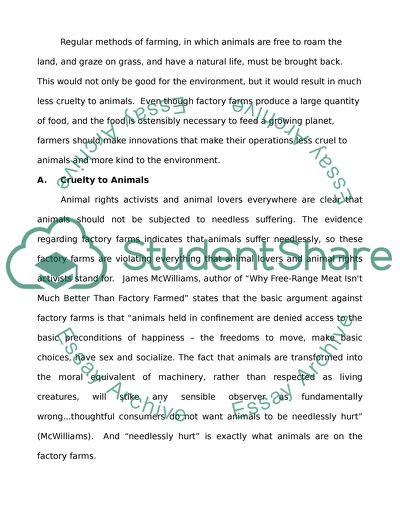Cite this document
(“Factory Farms Research Paper Example | Topics and Well Written Essays - 1750 words”, n.d.)
Retrieved from https://studentshare.org/english/1433998-we-should-avoid-eating-meat-from-factory-farms
Retrieved from https://studentshare.org/english/1433998-we-should-avoid-eating-meat-from-factory-farms
(Factory Farms Research Paper Example | Topics and Well Written Essays - 1750 Words)
https://studentshare.org/english/1433998-we-should-avoid-eating-meat-from-factory-farms.
https://studentshare.org/english/1433998-we-should-avoid-eating-meat-from-factory-farms.
“Factory Farms Research Paper Example | Topics and Well Written Essays - 1750 Words”, n.d. https://studentshare.org/english/1433998-we-should-avoid-eating-meat-from-factory-farms.


